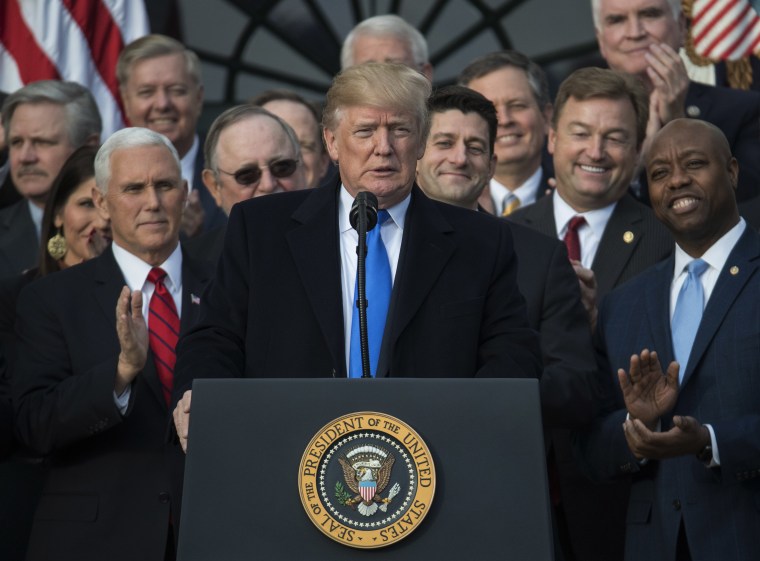Late last year, as the Republicans' regressive tax plan was poised to clear Congress, Senate Majority Leader Mitch McConnell (R-Ky.) looked ahead to the 2018 midterms with some confidence. "If we can't sell this to the American people, we ought to go into another line of work," he said at the time.
Nine months later, GOP officials have not only failed to sell their tax breaks to voters, they've also largely given up on even trying. The HuffPost published an interesting report yesterday examining Republicans' campaign messaging in quantifiable terms:
[T]he funny thing about the tax cut bill is Republicans are hardly talking about it.According to data compiled by Kantar Media/CMAG for HuffPost, just under 12 percent of all GOP TV ads have mentioned the new tax bill so far this year. That's out of 396,607 TV spots that have aired this year -- a total of 1,039 individual ads. The supposed centerpiece of the GOP's agenda is merely a footnote.
There's no great mystery as to why Republicans are downplaying their own success: the American mainstream has never liked the GOP tax breaks, and it still doesn't.
A recent NBC News/Wall Street Journal poll, for example, found that a plurality of Americans is less likely to vote for a candidate who supports the Republican tax plan. For voters in the most competitive House districts, opposition is even stronger.
The result is an exceedingly awkward dynamic: GOP lawmakers in Congress have exactly one major accomplishment, and most of them are reluctant to brag about it because voters don't like it.
They also can't talk too much about their plans for the next Congress -- targeting health care benefits is high on Republicans' to-do list -- because the electorate opposes those ideas, too.
And so, as we discussed last month, after nearly two years of attempts at governing, with their party controlling all of the levers of federal power for the first time in a decade, the Republican message is still little more than, "Nancy Pelosi is bad and immigrants are scary."
